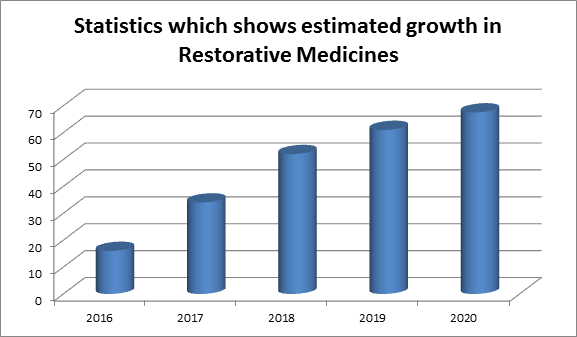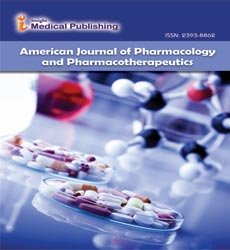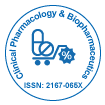Euro Pharmacology 2020 welcomes all the participants across the world to attend 16th Annual Congress on Pharmacology and Toxicology during September 14-15, 2020 which comprises prompt keynote presentations, Oral talks, Poster presentations and Exhibitions.
Euro Pharmacology 2020 focuses on the importance to recognize drugs and how they can influence human physiology. It is with better knowledge of Pharmacology one can know the right dose and quantity forms of medicines. More research in pharmacology deals with recognizing and reacting to drug exchanges and its side impacts along with its method of action, its therapeutic index and thereby treat accordingly. More intensive study with the interaction between drug combined with its therapeutic effect helps to identify the properties of ideal drugs.
Why to attend???
Join your lords around the world focused on knowledge about Pharmacology and related developments, which is your solitary best chance to reach the largest accumulation of members from the Pharmacology communal, conduct protests, distribute information, meet with current and potential professionals, make a squish with a new research works, and receive name acknowledgement at this 2-day event. World-renowned speakers, the most recent research, advances, and the newest updates in Pharmacology are characteristics of this conference.
Target Audience:
-
Students, Scientists, Researchers, and Faculty of Pharmaceutical Universities
-
Medical Colleges, Researchers from Pharmaceutical Companies, Pharmacy Associations and Societies
-
Business Entrepreneurs, Training Institutes, Software developing companies
-
Manufacturing Medical Devices Companies, CRO and Data Management Companies.
Pharmacology
Pharmacology is a part of biomedical science, including clinical pharmacology, which is concerned about the impacts of medications/pharmaceuticals and different xenobiotics on living lifestyle, just as their development and materialistic properties. The study of these drugs, their sources, their nature, and their properties. Pharmacology is the study of the body's reaction to drugs. Pharmacology analyses rely on new "omics" technologies that can determine changes in large numbers of variables, often at a genome-wide level, to build networks for analysing drug action.
-
Clinical pharmacology
-
Pharmacodynamics
-
Pharmacogenetics
-
Pharmacokinetics
-
Receptor pharmacology
Ethonopharmacology
Traditional patterns of drugs need more evidence-based studies on both crude drugs and purified Phyto molecules. Use of natural products as pharmacological tools could lead to a number of new majors therapeutically lively metabolites. Main molecules are more screened for their potential in positions of quality control, safety assessments, and studies about molecular pharmacology and their linked properties. Identification, and quality and safety assessment of normal products is a fundamental requirement of industry and other companies dealing with normal health products.
Neuropharmacology and Psychopharmacology
Neuropharmacology is the study of how drugs affect cellular function in the nervous system, and the neural mechanisms through which they influence behaviour. There are two main branches of neuropharmacology: behavioural and molecular. Behavioural neuropharmacology focuses on the study of how drugs affect human behaviour (neuropsychopharmacology), including the study of how drug dependence and addiction affect the human brain. Molecular neuropharmacology involves the study of neurons and their neurochemical interactions, with the overall goal of developing drugs that have beneficial effects on neurological function. Both fields are closely connected, since both are concerned with the interactions of neurotransmitters, neuropeptides neuro hormones, neuromodulators, enzymes, second messengers, co-transporters, ion channels, and receptor proteins in the central and peripheral nervous systems. Studying these interactions, researchers are developing drugs to treat many different neurological disorders, including pain, neurodegenerative diseases such as Parkinson's disease and Alzheimer's disease, psychological disorders, addiction, and many others.
-
Dose response relation in psychiatric medications
-
Neurogenesis and repair
-
Neurochemical interactions
-
Molecular neuropharmacology
-
Behavioural neuropharmacology
-
Neuro Immune pharmacology and its associated diseases
-
Psychotherapy and innovative psychopharmacological approaches
Biochemical Pharmacology
Pharmaceutical biochemistry consists the data of biochemistry & chemistry & applies to the production of the many helpful medicine. It principally issues with the science of medicine, and their clinical uses and therefore the study of their adverse effects on living organisms. It provides a whole understanding of chemical processes occurring and related to the living cells at molecular level that's associated with drug action. It was conjointly helping to acquire the data on the adverse effects, molecular targets, & characterization of medicine or different chemical substance within the living cells & organisms.
Molecular and Clinical Pharmacology
Molecular and Clinical Pharmacology is dedicated to understanding disease processes, defining therapeutic strategies for intervention and developing the scientific basis of drug safety. Equipped with state-of-the-art facilities, our research teams' work is amongst the most highly rated in the UK and takes place in the following fields.
-
Personalised Medicine
-
Drug Safety Science
-
Infection Pharmacology
-
Neuropharmacology
-
Antimicrobial Pharmacodynamics and Therapeutics
Nursing Pharmacology
Nursing pharmacology helps nurses to understand how drugs work in the body. They enable them to understand the therapeutic effects, anticipate and recognize the potential side effects or toxicities of the drugs administered by the patients. In drug therapy today, nurses, together with physicians and pharmacists, participate in a system of checks and balances designed to promote beneficial effects and minimize harm. Nurses are especially important in this system because it is the nurse not the physician or pharmacist who follows the patient’s status most closely
-
Pharmacokinetics
-
Pharmacotherapeutics
-
Pharmacodynamics
Environmental Pharmacology
The environmental Pharmacology is a special branch of pharmacology. It involves in the study of gene, toxin and drug environment interactions and it deals with the environmental science, medicine, ecology, genetics and chemistry. This method implemented for amalgamating the presence of pharmaceutical products and their metabolites in the environment. Pharmaceutical and house care products gain access to environment through various means and effect the flora and fauna and modulate the ecosystem. Eco pharmacology and Eco pharmacovigilance are propagators of green healthcare.
-
The Health impacts of pollution
-
Water Scarcity
Genetic toxicology
The gene toxicity is described as the harmful chemical substances that damage the genetic information in the cells. By exposing to this kind of chemical and biological agents results in epigenetic alternations which translate to variety of diseases mainly to cancer. An increase in the incidence of mutational events in human eggs or sperms could lead to an increase in the incidence of genetic disease and disability in future generations. In contrast, effects in somatic cells do not pose a threat to future generations, because they are not genetically transmitted beyond the individual in which they occur Genetic toxicology is a branch of the field of toxicology that assesses the effects of chemical and physical agents on the hereditary material (DNA) and on the genetic processes of living cells. Such effects can be assessed directly by measuring the interaction of agents with DNA or more indirectly through the assessment of DNA repair or the production of gene mutations or chromosome alterations.
Drug Discovery & Drug Screening
In the fields of medicine, biotechnology and pharmacology, drug discovery is the process by which new candidate medications are discovered, Historically, drugs were discovered by identifying the active ingredient from traditional remedies or by serendipitous discovery, as with penicillin. More recently, chemical libraries of synthetic small molecules, natural products or extracts were screened in intact cells or whole organisms to identify substances that had a desirable therapeutic effect in a process known as classical pharmacology. After sequencing of the human genome allowed rapid cloning and synthesis of large quantities of purified proteins, it has become common practice to use high throughput screening of large compounds libraries against isolated biological targets which are hypothesized to be disease-modifying in a process known as reverse pharmacology. Hits from these screens are then tested in cells and then in animals for efficacy.
Cardiovascular Pharmacology
Cardiovascular Pharmacology deals with the study of the effects of drugs upon the heart or circulatory system. It mainly contributes to the safety profile of potential new drugs and provides pharmacological data that can be used for optimization of further compounds and the ultimate selection of compounds suitable for clinical development. The cardiac drugs affect the function of the heart in three main ways. They can affect the force of contraction of the heart muscle (inotropic effects), they can affect the frequency of the heartbeat or heart rate (chronotropic effects) or they can affect the regularity of the heartbeat (rhythmic effects). Drugs can also affect blood vessels by altering the state of compression of the smooth muscle in the vessel wall, altering its diameter and accordingly directing the volume of blood stream. Such medications are classified as vasoconstrictors or vasodilators depending on the smooth muscle lining contraction and relaxation respectively.
Forensic toxicology
Forensic toxicology is the use of toxicology and disciplines such as analytical chemistry, pharmacology and clinical chemistry to aid medical or legal investigation of death, poisoning, and drug use. The primary concern for forensic toxicology is not the legal outcome of the toxicological investigation or the technology utilized, but rather the obtainment and interpretation of results. A toxicological analysis can be done to various kinds of samples. A forensic toxicologist must consider the context of an investigation, in particular any physical symptoms recorded, and any evidence collected at a crime scene that may narrow the search, such as pill bottles, powders, trace residue, and any available chemicals. Provided with this information and samples with which to work, the forensic toxicologist must determine which toxic substances are present, in what concentrations, and the probable effect of those chemicals on the person.
-
Analytical Probing
-
Endotoxicology
-
Spectrophotometry
-
Immunoassay
-
Biotransformation




